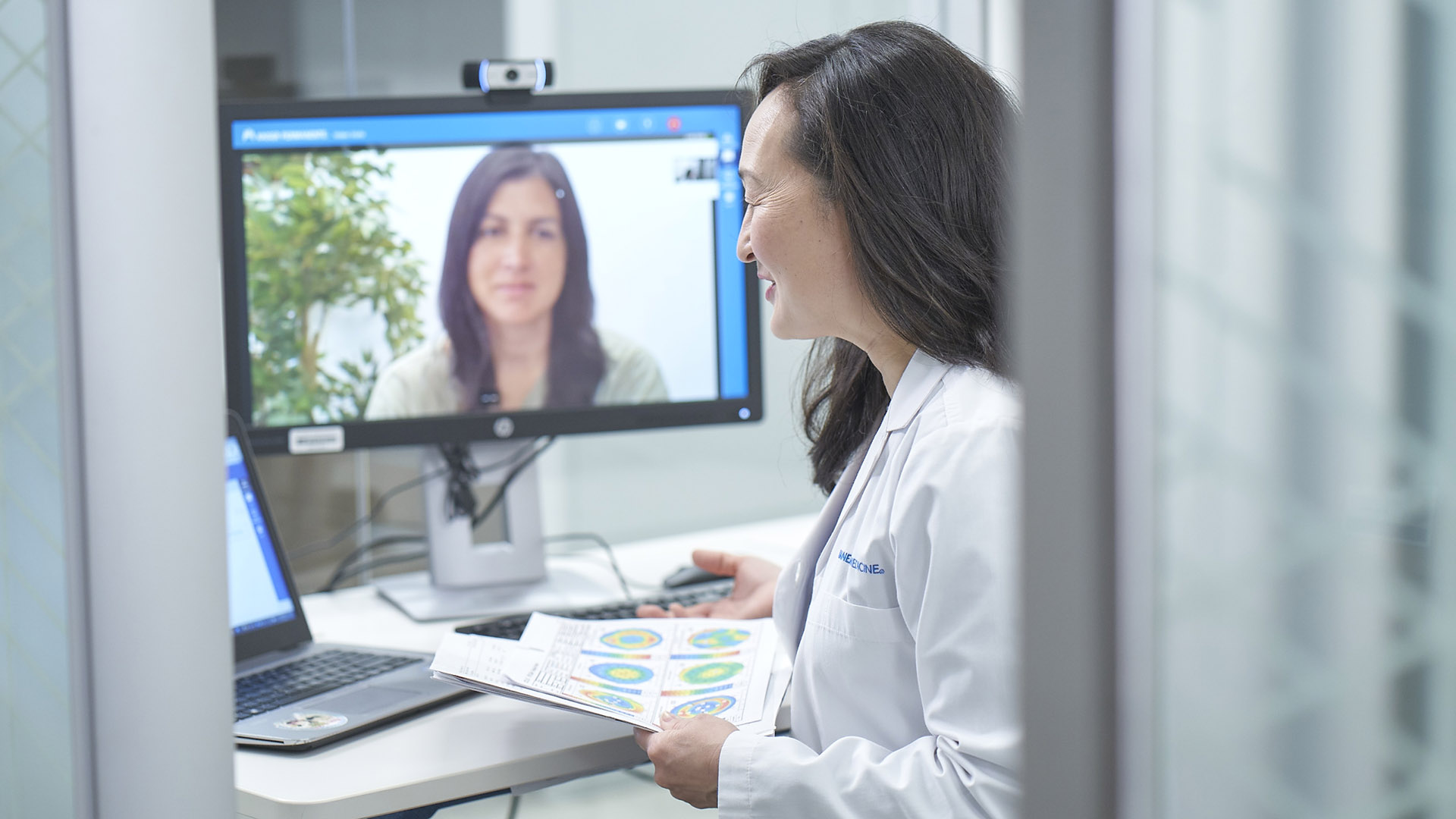The Permanente Federation co-CEOs share 7 strategies to build a trustworthy, affordable and accessible health care system for the next generation

Dr. MacLean on using AI to improve breast cancer detection
Recent studies have shown that AI can help improve health care outcomes for women, including breast cancer survival. To pave the way forward, health care organizations should explore implementing AI systems now for breast cancer screening and diagnosis, writes Ainsley MacLean, MD, chief medical information officer and chief AI officer, Mid-Atlantic Permanente Medical Group, in a recent Forbes column (link at end of article).
Talking about the crucial role AI can play in detection and diagnosis, Dr. MacLean shared the benefits and caveats of using new technology to help women who might have undetected breast cancer.
Mammograms are key to early breast cancer detection and Kaiser Permanence’s integrated care teams conduct more than 1 million mammograms annually across the country. Building on that vast capacity while also delivering a higher level of care is the inherent goal of Kaiser Permanente’s value-based approach to health care innovation, which includes implementing new AI technologies.
Related AI health care innovation story: “Dr. Parodi on the pros and cons of AI in health care”
Using AI to improve breast cancer detection and diagnosis
Dr. MacLean listed how using AI in breast cancer screening and diagnosis can aid radiologists with their decision-making and increase effectiveness, including using the technology to:
- Spot data patterns that might go unnoticed, thus increasing detection accuracy
- Streamline workflows by examining high volumes of radiology images efficiently
- Assist pathologists by highlighting areas on images that appear abnormal and indicative of breast cancer
AI is a powerful tool but not the sole solution
She also shared some barriers and caveats for health care leaders looking at new technology, including a caution that AI shouldn’t be seen as an end-all solution for diagnosis and screening. Instead, it should be viewed as an aide for radiologists and pathologists.
“When it comes to medicine, even if AI did reach a point where it could one day act autonomously, we should not put aside the expertise of medical practitioners,” wrote Dr. MacLean.
More research will be needed and not all medical facilities will have the resources to invest in augmenting screening with AI, added Dr. MacLean. Health care organizations that can make use of AI will need to consider and address health equity concerns regarding the current training methods and accuracy of AI tools.
“It’s important for physicians and other leaders to carefully examine and account for certain variables in data sets, such as racial groups and age so they can minimize the chances of biased and inaccurate results.”
The promise of connecting more breast cancer patients with earlier treatment while reducing false positives is a powerful example of how health care innovations should add value to — not detract from — patient-centered care, enhance the skills and expertise of medical practitioners, and create a brighter, more equitable future of health care delivery.
You can read the full article on Forbes.com.


